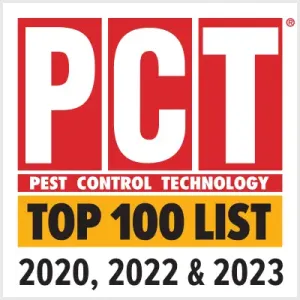Rodent Identification
What Are Rodents?
Rodents make up the largest group of mammals and come in a wide variety of sizes and shapes. They have varying food preferences, nesting habits, and behaviors. From the tiny house mouse that weighs a few ounces to the very large capybara that weighs more than 150 pounds, all rodents have one thing in common — their front teeth grow continuously throughout their life. In order to prevent their front incisors from overgrowing, rodents need to chew constantly.

When living out in nature, most species of rodents play an important part in the ecosystem, acting as prey for predatory animals. However, a lot of rodents have come to live close to people, relying on us for food, water, and shelter. Rodents like mice and rats have become common invaders of North Carolina homes and businesses, damaging our property and creating health risks to our families.
Are Rodents Dangerous?
There are many health hazards and allergies associated with rodents making them a dangerous pest inside any home or business. Mice and rats, for instance, spread things like hantavirus, leptospirosis, and salmonellosis. Rodents that get indoors contaminate our food and the surfaces of our homes with the urine, feces, and saliva.
Rodents are also dangerous due to the damage they cause to the structures in our homes, as well as to our personal property. Their chewing habits cause damage to:
- Wires and Pipes
- Insulation
- Flooring and Drywall
- Furniture
- Clothing and Shoes
- Books and Boxes
Why Do I Have A Rodent Problem?
If your property has places that rodents can forage for food, you are likely to have problems with these pests. Rodents will forage for food in trash cans, compost piles, pet food bowls, and garden areas. Inside they forage for food in kitchens, pantries, basements, and any other place where food is stored.
Rodents prefer to live outside but do move inside to escape harsh weather conditions. Rodents will move indoors at any time of the year; however, in North Carolina, when the temperatures cool down in the winter, you are more likely to experience problems with rodents. They move inside, seeking safe, warm shelter that is close to sources of food.
Where Will I Find Rodents?
Rodents like to nest close to food sources and in secluded areas that are out of the view of predators. Tree stumps, tall grass, dense vegetation, woodpiles, and fields are popular outdoor nesting spots for rodents. Inside they also create their nests in secluded places. They like to nest in attics, basement clutter, behind walls, behind large appliances, and the backs of cabinets and closets.
How Do I Get Rid Of Rodents?
Eliminate rodents from your home or business with the help of the professionals at Bug-N-A-Rug Exterminators. Trying to tackle pest problems on your own is difficult, time-consuming, and ineffective.
For over two decades, Bug-N-A-Rug Exterminators has solved pest problems for home and business owners throughout Pender, Brunswick, and New Hanover counties in North Carolina. Our qualified and dedicated staff solve local pest problems using the latest products, techniques, and pest control services. To start maintaining a rodent-free home or business, reach out to Bug-N-A-Rug Exterminators today!
How Can I Prevent Rodents In The Future?
Keep rodents out of your Wilmington, NC home with the help of Bug-N-A-Rug Exterminators and the following rodent prevention tips.
-
Clean up sources of food and water in and near your home. Make sure outside trash is in containers with tight-fitting lids. Inside, store food in the fridge or containers with air-tight lids.
-
Place door sweeps on exterior doors.
-
Install weatherstripping on windows and doors.
-
Replace any torn or loose screens.
-
Install tight-fitting caps on chimneys.
-
Seal up any openings along the roofline, exterior walls, or the foundation.
-
Reduce clutter that rodents can hide in around your house. Remove fallen trees and tree stumps and clean-up piles of debris from your yard. Inside, keep storage areas neat and free of clutter.









